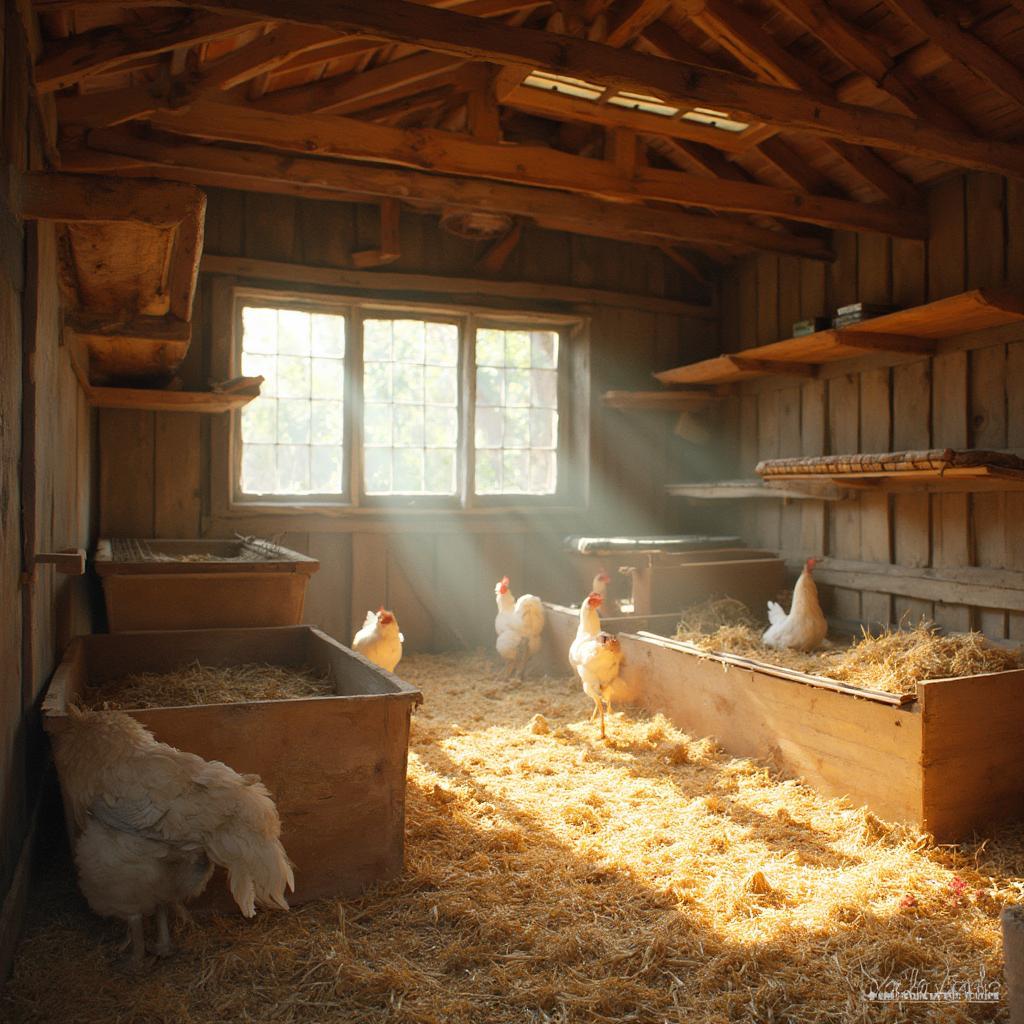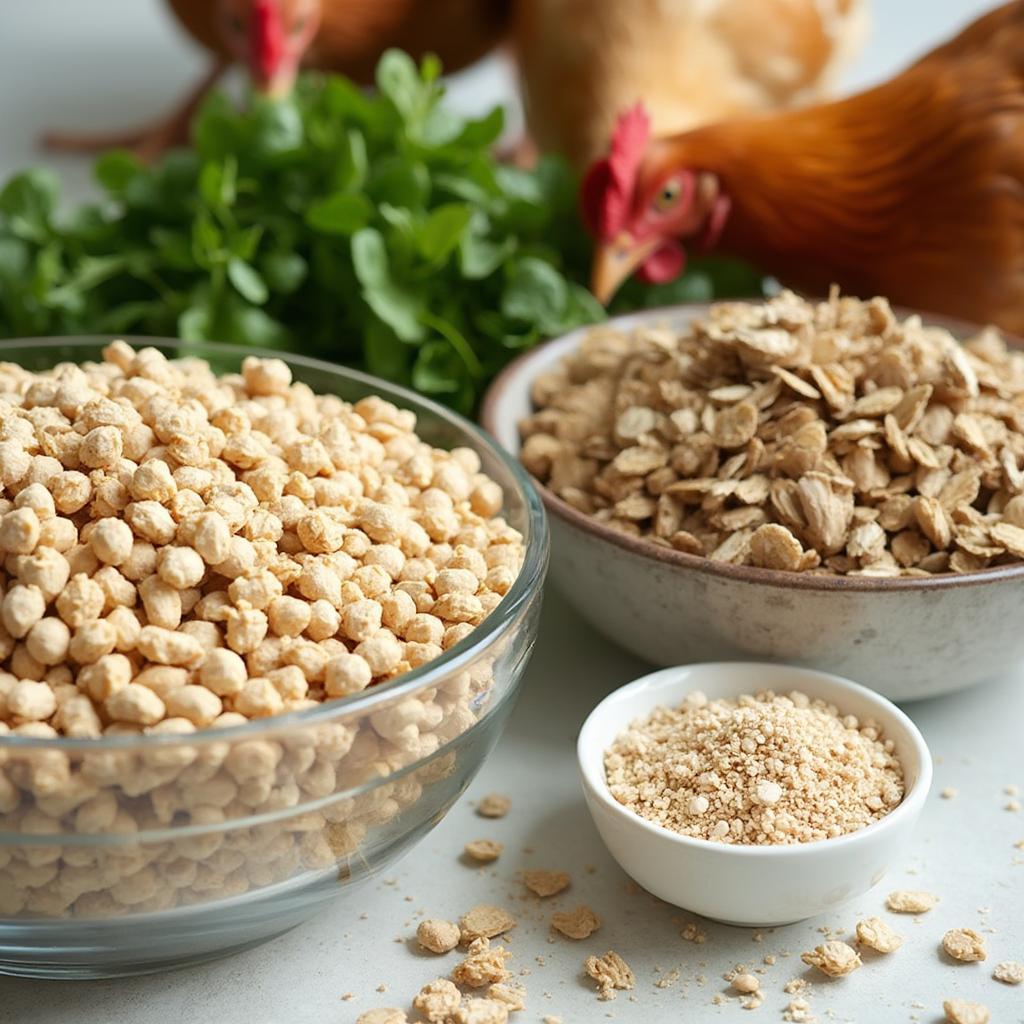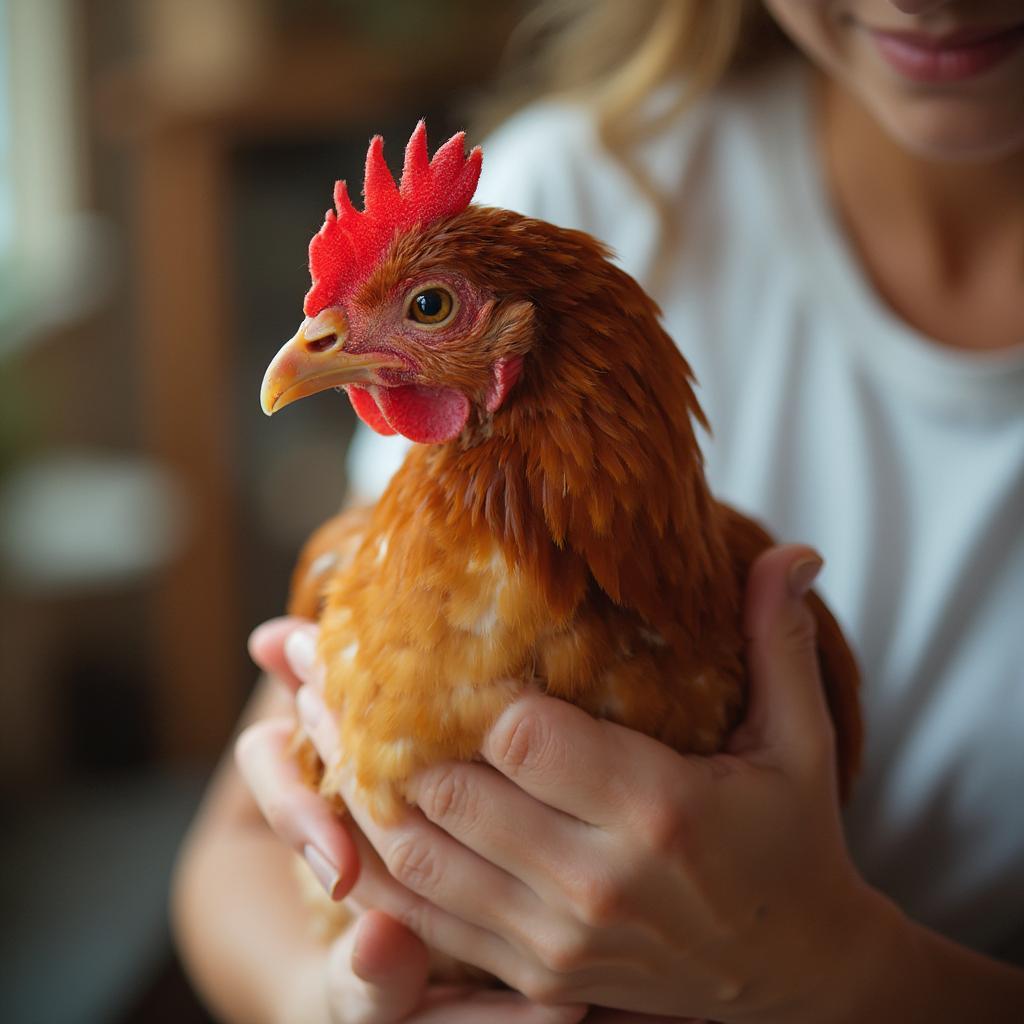Your cart is currently empty!

Essential Hen Care Tips for Happy and Healthy Chickens
Keeping chickens can be a rewarding experience, providing fresh eggs and even companionship. But like any pet, hens require proper care to thrive. This comprehensive guide will delve into essential Hen Care Tips, covering everything from coop setup and nutrition to health management and predator protection. By following these hen care tips, you can ensure your flock stays healthy, happy, and productive.
Setting Up the Perfect Coop: A Home for Your Hens
A well-designed coop is crucial for your hens’ well-being. It provides shelter from the elements, a safe place to roost at night, and protection from predators. The coop should be spacious enough to allow your hens to move around comfortably. A good rule of thumb is to provide 2-4 square feet of floor space per hen. Ventilation is also key. Proper airflow prevents the buildup of ammonia and moisture, which can lead to respiratory problems. Ensure your coop has adequate windows or vents that can be opened and closed depending on the weather.
 Well-designed hen coop with proper ventilation and nesting boxes.
Well-designed hen coop with proper ventilation and nesting boxes.
Nesting boxes are essential for egg laying. Provide one nesting box for every 3-4 hens. These boxes should be filled with soft bedding material like straw or wood shavings. Finally, the coop needs a secure roosting bar where the hens can sleep. The roosting bar should be elevated off the ground and provide enough space for all your birds to perch comfortably.
Nourishing Your Flock: The Best Diet for Healthy Hens
A balanced diet is vital for healthy hens and optimal egg production. Commercial chicken feed is a good foundation, providing essential nutrients like protein, vitamins, and minerals. Layer feed, specifically formulated for laying hens, is recommended for hens over 20 weeks old. Supplements like oyster shell or calcium grit can also be provided to ensure strong eggshells.
 Various chicken feed options, including layer pellets, grains, and oyster shells.
Various chicken feed options, including layer pellets, grains, and oyster shells.
In addition to commercial feed, you can offer your hens treats like kitchen scraps, vegetables, and fruits. However, avoid feeding them avocado, chocolate, onions, or garlic, as these can be toxic to chickens. Fresh, clean water should always be available.
Keeping Your Hens Healthy: Common Diseases and Prevention
Regular health checks are crucial for preventing and managing diseases. Watch for signs of illness, such as lethargy, decreased appetite, or changes in droppings. Quarantine any sick birds immediately to prevent the spread of disease. Common chicken diseases include coccidiosis, avian influenza, and Marek’s disease. Vaccinations are available for some diseases, so consult with a veterinarian to determine the appropriate vaccination schedule for your flock. Regular cleaning of the coop and surrounding area is also essential for preventing disease outbreaks.
 A person performing a health check on a hen, looking for signs of illness.
A person performing a health check on a hen, looking for signs of illness.
Protecting Your Flock: Predator Control and Security
Protecting your hens from predators is paramount. Common predators include foxes, raccoons, hawks, and even neighborhood dogs. Secure your coop with strong wire mesh and latches. Consider using electric fencing around the run to deter digging predators. Regularly inspect your coop and run for any signs of damage or potential entry points.
What are the basic hen care tips for beginners?
Provide adequate shelter, nutritious feed, fresh water, and protection from predators. Regular health checks are also essential.
How much space do chickens need in their coop?
Allow 2-4 square feet of floor space per hen inside the coop and 8-10 square feet per hen in the outdoor run.
What should I feed my chickens?
Commercial layer feed supplemented with calcium grit, kitchen scraps (excluding toxic foods), vegetables, and fruits.
How can I protect my chickens from predators?
Secure your coop and run with strong wire mesh, latches, and consider using electric fencing. Regularly inspect for potential entry points.
What are signs of a sick chicken?
Lethargy, decreased appetite, changes in droppings, ruffled feathers, and respiratory issues.
How often should I clean the chicken coop?
Clean the coop thoroughly at least once a week, and remove droppings daily. Deep clean and disinfect the coop every few months.
Where can I learn more about specific chicken breeds?
You can find more information at hen care tips in urdu and learn about 5 month baby care tips. For other home care tips, consider reviewing kitchen care tips. You can find plant care resources such as indoor bonsai care tips or peperomia watermelon care tips.
By following these hen care tips, you’ll be well on your way to raising a happy, healthy, and productive flock. Remember, consistent care and attention are key to their well-being.
When you need assistance, please contact us via WhatsApp: +1(641)206-8880, Email: [email protected] or visit us at 456 Pine Avenue, Toronto, ON M5V 2J4, Canada. Our customer service team is available 24/7.

Leave a Reply